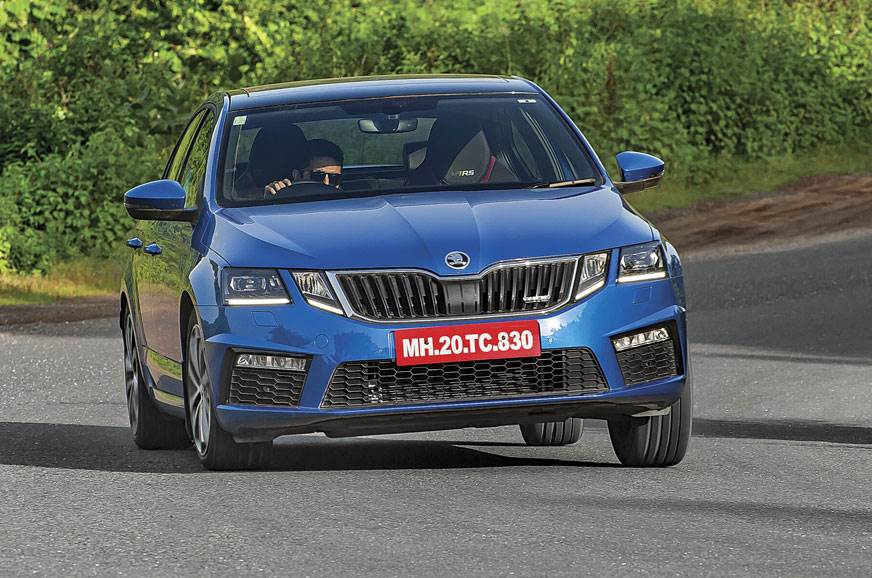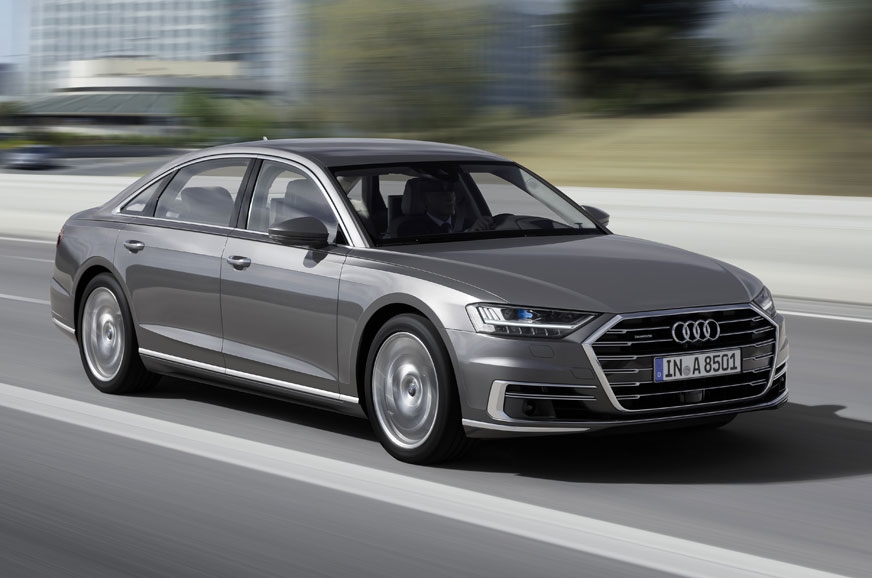
What is it?
With the first-generation A8 launched as recently as 1994, Audi is the last of the German luxury trio to enter the large luxury sedan race. But this isn’t to say the A8 trails the rest. In fact, various generations of the A8 have introduced many segment-first technologies and, this time around, Audi claims the fourth generation is the future of the luxury class. To back that up, it has made this the first production automobile in the world with Level 3 conditional automated driving; Level 3 allows the driver to take their eyes off the road and focus on other stuff like the phone. The A8’s also got some pretty nifty tech too like a button-less console, the option of a relaxation seat with foot and back massage functions, Audi’s Artificial Intelligence (AI) with an active suspension, and remote parking via a smartphone.

As was always the case, the fourth-generation (D5) A8 also uses the Audi Space Frame concept built on the MLB Evo platform. The body employs more types of materials than any Audi production model before; 58 percent is aluminium complemented by hot-formed steel, carbon-fibre-reinforced polymer and magnesium. And keeping them all together are 14 different joining methods, from bolts to welding to glueing. The result is a body that’s 24 percent more rigid than its predecessor.
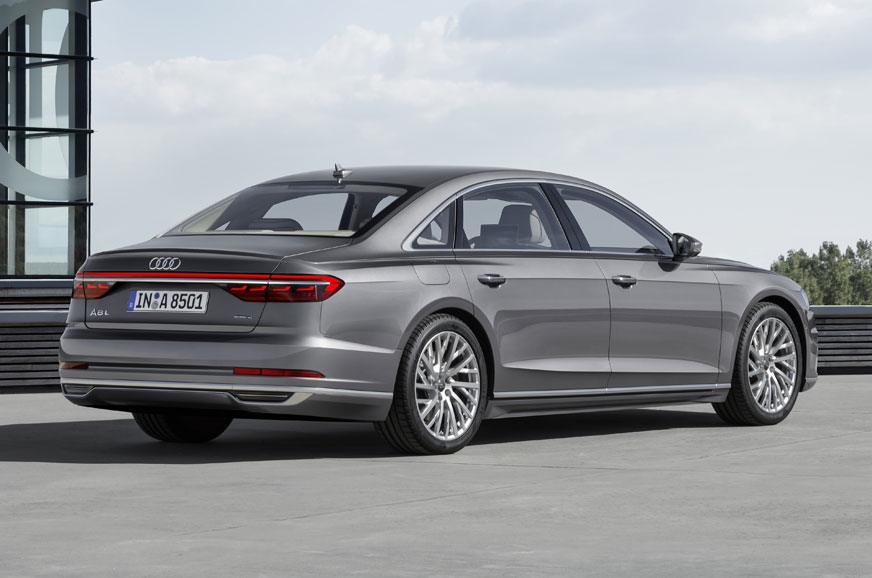
What’s it like on the outside?
The new A8 may not be too much of a departure from the family design but it has a far more commanding stance. Dominating the front is the Audi trapezoidal grille, but here it’s large, stretching tall and wide. The HD Matrix LED headlamps and the laser light look pretty cool and put on a dramatic light show upon locking and unlocking the car. Each headlamp cluster makes use of 138 individual LEDs and one laser diode. The laser comes into play from 70kph and doubles the range of the high beam, while the LEDs for the high and low beam are variably controlled to create a precise light cone depending on driving conditions. We didn’t get to test this out, but the lights can create a blank spot around oncoming road users thus avoiding dazzling them. And they also function as cornering lights, coming on just before the wheel is turned thanks to route inputs from the navigation.
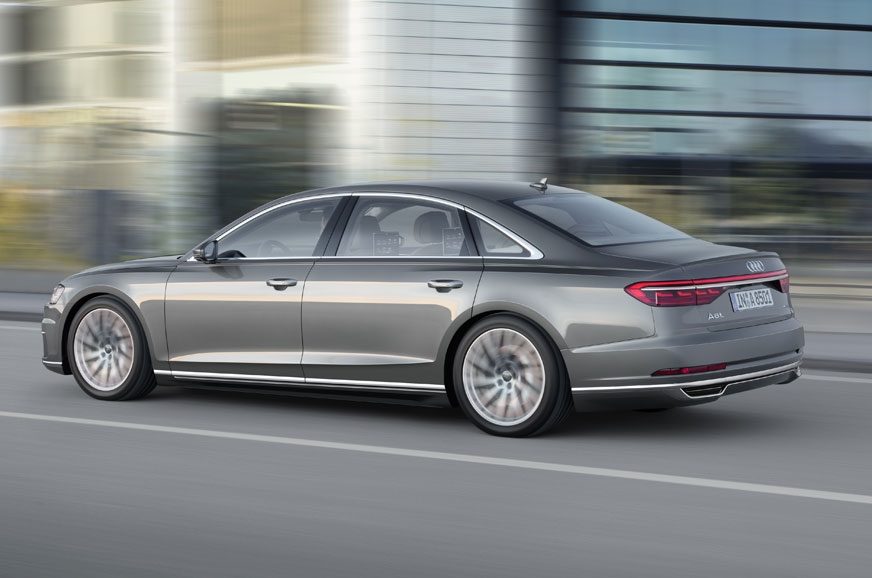
Over to the sides, there isn’t much to report; it’s pretty understated, but the sheer length adds a good dose of elegance. The rear, however, holds what is possibly the largest design change for the A8 – a full-length light strip à la sister brand Porsche. The lamps themselves are OLED units and, like the headlamps, they light up when the car is locked or unlocked.
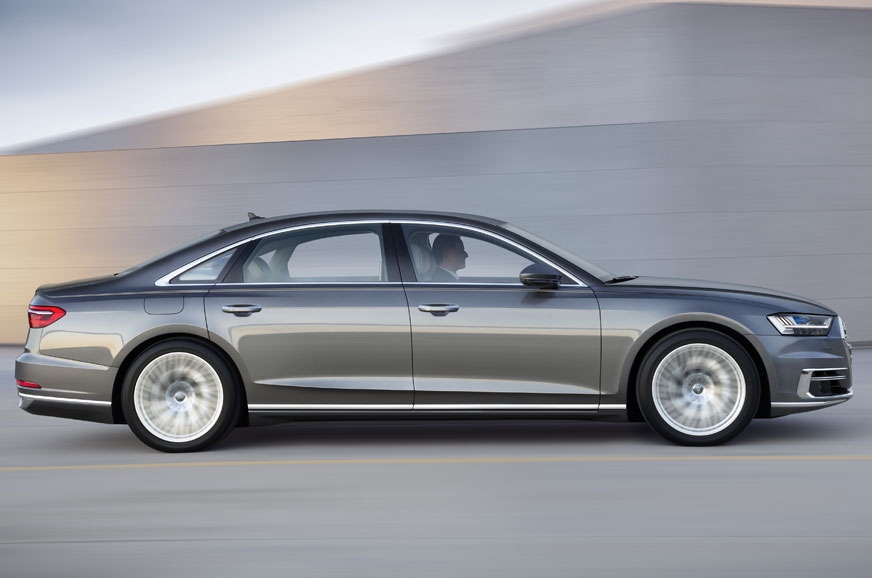
What’s it like on the inside?
Even before you’re in, the pampering begins. Since pulling a latch can be quite tiring, the A8’s door handles are actually large switches, and a mere five millimetre pull triggers a switch to release the catch. Similarly, a tiny pull on the inside handles is all that’s required to open the door from inside; but don’t sit and wait, you have to push it manually after that. The doors also have something called ‘exit warning’ which delays the opening if there’s a cyclist or car approaching from the rear.
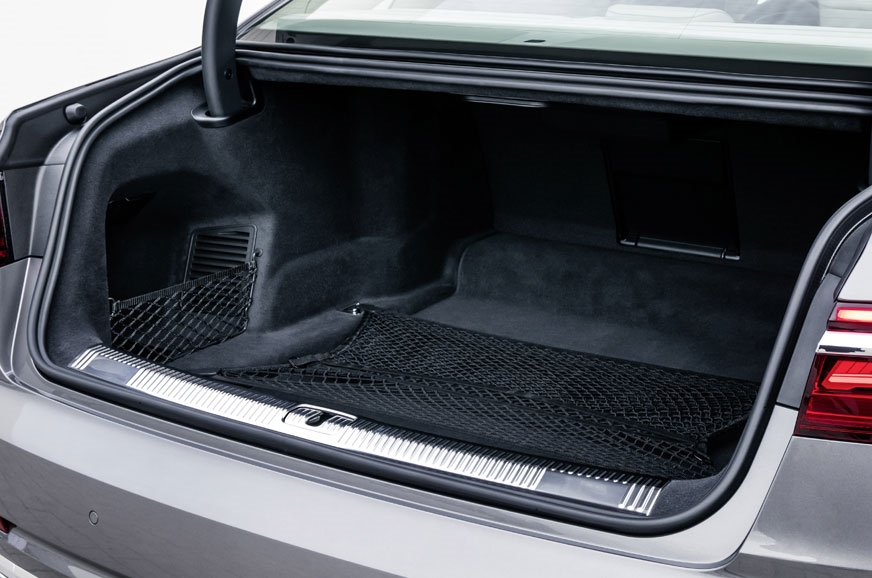
Space is abundant on the inside, with the regular length A8 growing 40mm longer than its predecessor model, and if that wasn’t enough, there is also a long-wheelbase version that offers a further 130mm increase in wheelbase.
Being Audi’s flagship, quality of materials is absolutely top-notch and the leather surfaces, wood inlays and aluminium all exude fine craftsmanship. The three-seat rear setup is standard and can be had with a massage function as well as power adjustments for the backrest and seat base. But what is truly lounge-class is what Audi calls the relaxation seat. You can fully recline your seat, push the front passenger seat forward and then put your leg up on an electrically foldable surface to have your feet warmed and massaged. You’ve heard of Audi’s Matrix LED headlamps, well, the A8 has Matrix LED reading lamps at the back that let you control the size and hot spot of the light cone.
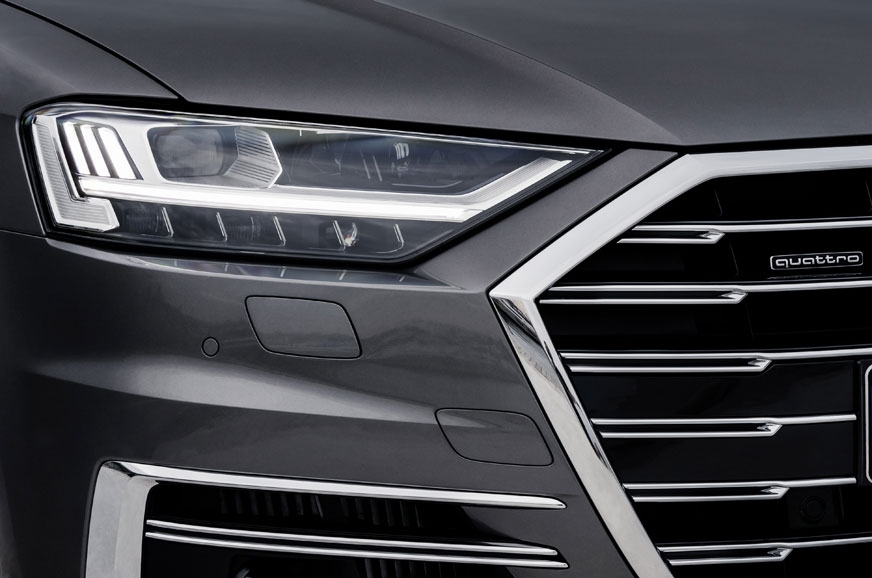
Control Freak
Life at the helm is equally luxurious. The front seats have all the adjustments you’d expect and then some, in the form of a massage function for your back and shoulders; road rage isn’t something that’ll get to you here. The front also holds the biggest interior change, housing Audi’s third-generation MMI Touch Response touchscreen system. Buttons are on the endangered list and the system does away with the rotary/push-button control and touchpad. You can click, swipe, zoom and scroll away, but on the central 10.1-inch touch display and the 8.6 inch unit below. To make it feel more natural, you need to put a little pressure on the screen to activate a function, like you would with a switch. Once you do, you will hear a click and get some mechanical feedback. It did feel better than a regular touchscreen, but it’s no replacement for buttons or a touch wheel, as you have to take your eyes off the road to focus on the screen, unless of course, you’re in autonomous mode. The touch controls don’t just end there, even the light switches and air vents are controlled by touch.
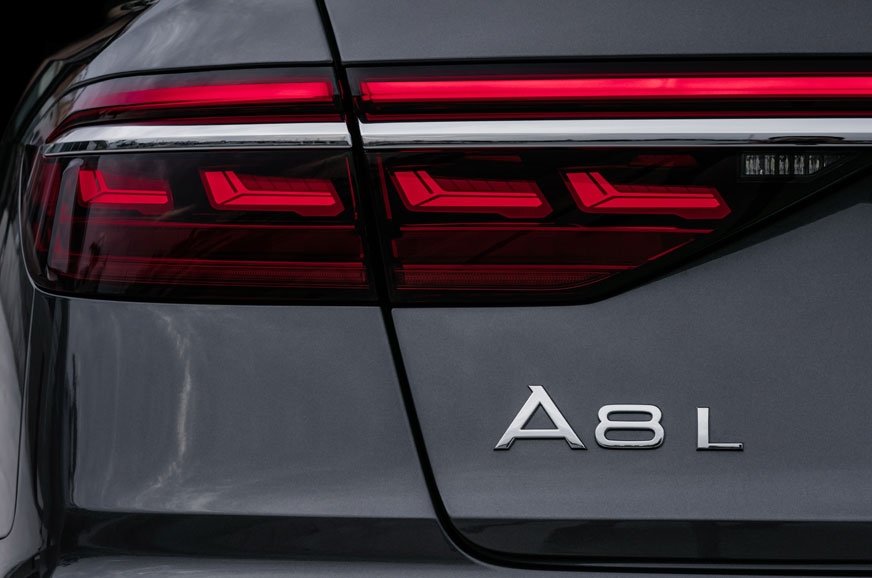
Setting the myriad of adjustments each time the driver changed would be a nightmare, thus the A8 can hold seven user profiles in memory. However, feeding the info can be equally tiresome as each personalisation can involve up to 400 parameters, right from the driver seat, the wheel, the AC settings and navigation to media settings. Needless to say, we didn’t try all 400.
What’s it like to drive?
The A8 comes with a range of powertrain options. There’s the mighty W12 and the plug-in hybrid e-tron. The more regular ones include the 3.0-litre turbo-diesel and petrol V6s, both of which we expect to launch here, and a 4.0-litre petrol twin-turbo V8 that may make it to our market. We drove the A8L 60 TFSI powered by the V8. It puts out 460hp and 660Nm of torque mated to an eight-speed dual-clutch auto gearbox (DSG).
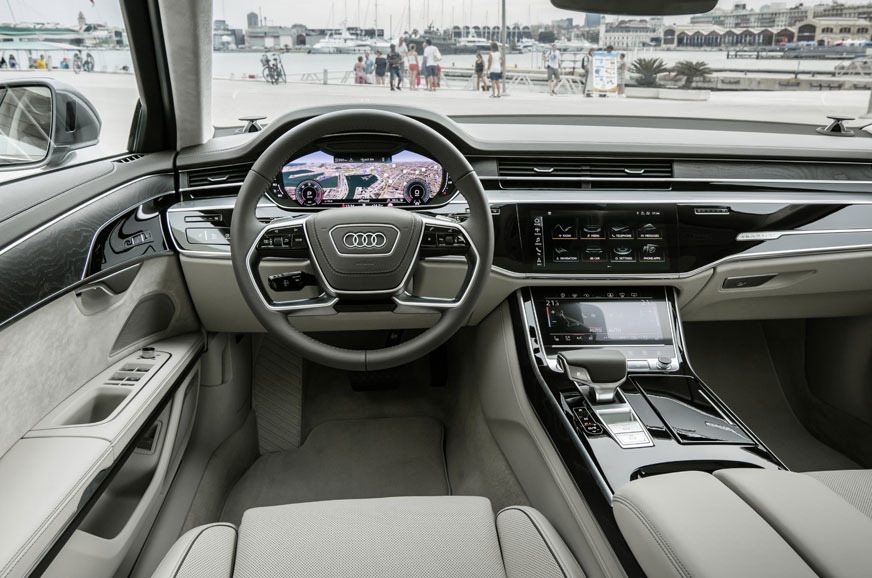
Driving in town is a relaxed affair and the gearbox shifts up to eighth gear quite early on, while the torque effortlessly glides the big sedan along. The engine is really smooth and on the motorway, too, it’s relaxed. While you wouldn’t buy this car for spirited driving, if you did have to move quickly, say to get away from your screaming fans, the A8 can get the job done. Stomp down on the accelerator and the V8 roars to life, letting you know there’s 460 horses to play with and power delivery is instantaneous. However, when cruising along in eighth gear and you want to overtake, there is a slight pause while the ‘box drops a gear or two; after this, progress is very rapid.
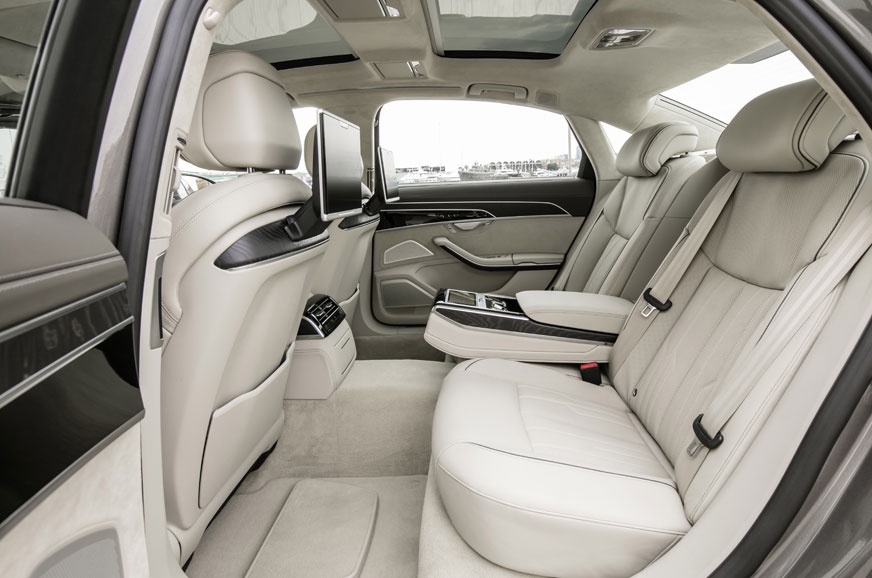
You can also switch the drive mode to ‘Dynamic’ for a quicker engine response, delayed shifts and a firmer ride. It also keeps the car in a constant state of alertness. When things calm down, you have a Comfort mode that you can switch to.
Steering feel isn’t something we’ve liked on many Audis before, but with the A8, the company has turned a corner. It’s really well-weighted and it gives you a nice connected feel. Funnily enough, this steering can actually be disconnected from the wheels, giving the motors the ability to provide numerous steering angles at each wheel, including the rear ones. Dubbed Dynamic all-wheel steering, it gives the A8 a turning circle tighter than an A4!
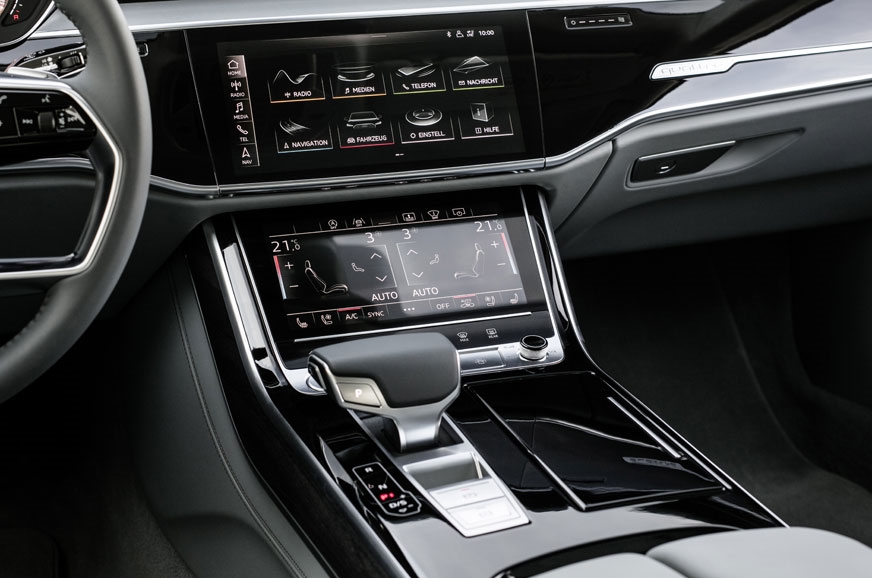
What’s it like to be driven in?
On their own, the seats are what you’d expect from a car in this class, but you do miss the pillow headrest of the S-class. What really impresses, however, is the relaxation seat. If you’re getting yourself an A8, this should be at the top of your options list. When launched, it’s likely to command a hefty premium but rear seat comfort is what you’re probably after if you’re shopping in this segment. With the front seat pushed forward, you have tonnes of legroom and the foot massager is pretty efficient adjusting for different feet sizes too. Also, the leg rest isn’t just a small extension for your heel but a nice large pad that supports a portion of your calves too.
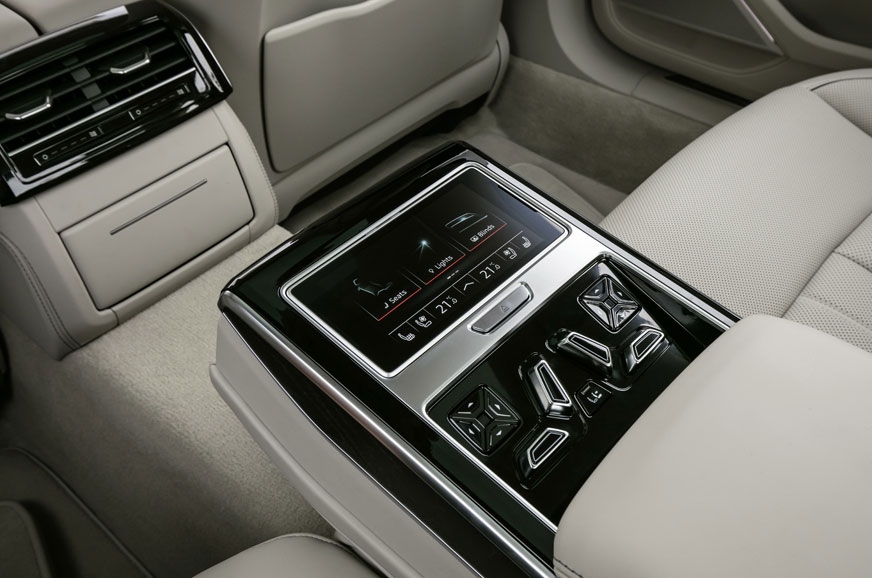
There isn’t much to test-ride quality in Valencia, and on the smooth roads, the ride was just fine, if a bit floaty.
Shifting to Dynamic mode does improve things a bit, but we’ll only really know once we have driven the A8 in India. Audi will soon be launching an active suspension version. We did experience various facets of this on a closed course, and most impressive for our market would be the body-levelling system; it lifts the car for bumps and automatically raises and drops the wheel in the exact opposite pattern of the bump, thus giving you a far flatter and levelled ride. Since this works on camera inputs, it’s likely to make it to our market and when it does, the horn will finally relinquish its position as the most overworked feature of a car.
The active suspension also has another trick up its sleeve. In case of an impending side impact, it can raise that side of the body by 8cm in half a second, thus taking the maximum impact on the stronger lower sill instead of the doors. Audi did simulate this for us too, and it’s pretty impressive.
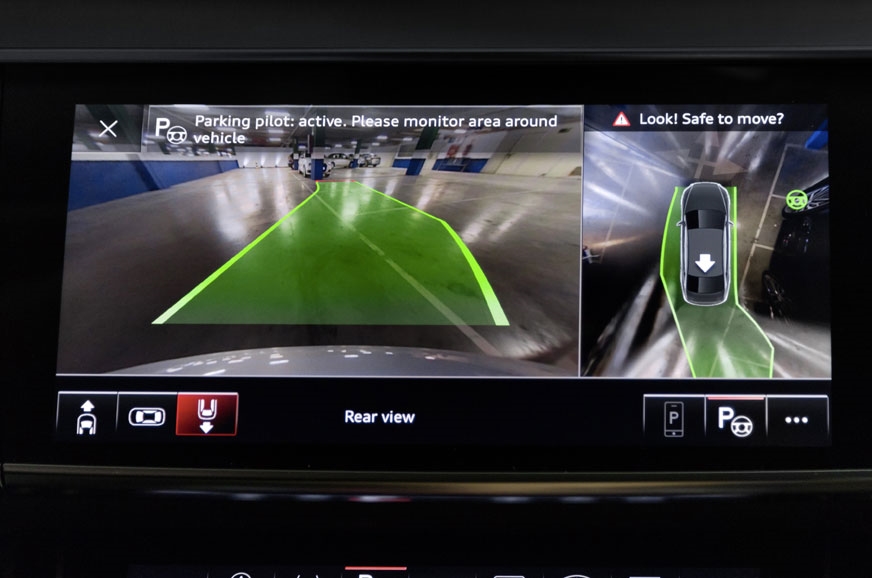
Should I buy one?
The A8’s a pretty impressive car and after a drive in Valencia, we’re eager to test it on our shores. But it’s not all perfect. There are some weak bits too, like rear seats, which, while comfortable, aren’t the best ones around. Also, the A8’s strongest point (automated driving) won’t make it to our shores, not soon and perhaps not even in its life cycle, but there’s plenty more to keep you interested.The styling exudes an elegant and confident stature, and the sheer size will appeal, while also paying good dividends in terms of cabin space. With technology, Audi has taken things a notch higher.
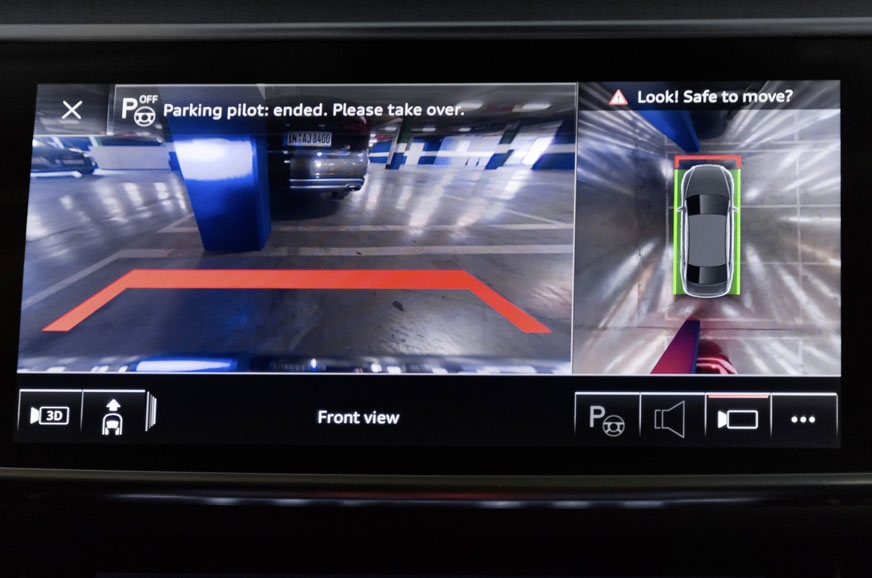
Remote parking doesn’t need a special fob, your smartphone will do just fine, and while stretch seats are common in this crowd, a foot massager isn’t. Also, worth mentioning is the Dynamic all-wheel steering the active suspension. Audi will launch the A8 as an import, so it isn’t going to be cheap or highly customisable. This did penalise its predecessor to an extent but, with the new A8, Audi has a far stronger contender.
[“Source-autocarindia”]



